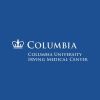Understanding How High Blood Pressure Affects Heart Health
High blood pressure, also known as hypertension, is a common condition that often goes unnoticed due to its lack of immediate symptoms. Despite being largely asymptomatic, it can have significant effects on your heart health over time. If left untreated, high blood pressure can contribute to various cardiovascular diseases, including heart attack, stroke, and heart failure. In this article, we will delve into how high blood pressure affects the heart, the risks associated with hypertension, and practical advice for managing and preventing high blood pressure to protect your heart health.

1. What Is High Blood Pressure and How Does It Develop?
High blood pressure occurs when the force of blood against the walls of your arteries is consistently too high. The arteries, which carry blood from the heart to the rest of the body, can become damaged over time when exposed to this increased pressure. Blood pressure is measured in two numbers: systolic and diastolic. The systolic number represents the pressure in your arteries when your heart beats, while the diastolic number measures the pressure when your heart rests between beats.
Typically, a normal blood pressure reading is around 120/80 mmHg. High blood pressure is diagnosed when readings consistently exceed 130/80 mmHg. While there is no single cause of hypertension, it can develop due to various factors such as age, genetics, lack of physical activity, poor diet, excessive alcohol consumption, and stress. In many cases, high blood pressure is preventable or manageable with lifestyle changes.
Capital Health Medical Center – Hopewell
capital health medical center hopewell
1 Capital Way, Pennington, NJ 08534, USA

2. How High Blood Pressure Damages the Heart
When the heart pumps blood with excessive force over an extended period, the strain on the heart and arteries can lead to several serious complications. One of the primary effects of high blood pressure on the heart is the thickening and narrowing of the arteries, a condition known as atherosclerosis. This makes it more difficult for blood to flow through the arteries, increasing the risk of blood clots, heart attacks, and strokes.
High blood pressure can also weaken the heart muscle over time. As the heart works harder to pump blood against the increased pressure, it can enlarge, leading to heart failure. This condition occurs when the heart becomes unable to pump blood efficiently, resulting in fluid buildup and reduced oxygen delivery to vital organs.
3. The Link Between High Blood Pressure and Heart Disease
One of the most dangerous outcomes of prolonged high blood pressure is its association with various forms of heart disease. The increased strain on the heart, as well as the damage caused to blood vessels, significantly raises the risk of coronary artery disease (CAD), heart attack, and heart failure. CAD occurs when the coronary arteries, which supply oxygen-rich blood to the heart, become clogged with fatty deposits, restricting blood flow.
People with high blood pressure are more likely to experience atherosclerosis, which can lead to the formation of blood clots. These clots can block the flow of blood to the heart, resulting in a heart attack. Additionally, high blood pressure can increase the risk of arrhythmias (irregular heartbeats), which can further complicate heart health. If left untreated, these conditions can have life-threatening consequences.
4. Symptoms and Early Warning Signs of High Blood Pressure
High blood pressure is often referred to as the “silent killer” because it typically doesn’t present any obvious symptoms until significant damage has already been done. However, some people may experience vague signs such as headaches, dizziness, blurred vision, or shortness of breath. These symptoms are often dismissed and may not seem related to high blood pressure, but they should not be ignored, especially if you have risk factors for hypertension.
Routine blood pressure screenings are crucial for detecting high blood pressure early, especially since the condition may not cause any noticeable symptoms until it has already caused damage to the heart and arteries. If you have concerns about your blood pressure, it is essential to get checked regularly by your healthcare provider.
5. How to Manage and Lower High Blood Pressure
Managing high blood pressure is essential for protecting your heart health and preventing long-term damage. Here are some proven strategies for lowering blood pressure and maintaining a healthy heart:
- Exercise Regularly: Physical activity, such as walking, jogging, swimming, or cycling, can help lower blood pressure by improving heart function and reducing artery stiffness. Aim for at least 150 minutes of moderate exercise per week.
- Adopt a Healthy Diet: Eating a heart-healthy diet, such as the DASH (Dietary Approaches to Stop Hypertension) diet, which is rich in fruits, vegetables, whole grains, lean protein, and low-fat dairy, can help lower blood pressure. Reducing sodium intake and limiting processed foods is also essential.
- Limit Alcohol and Caffeine: Excessive alcohol consumption and high caffeine intake can both raise blood pressure. Limiting or avoiding these substances can help manage your blood pressure levels.
- Reduce Stress: Chronic stress is a significant contributor to high blood pressure. Practice stress-reducing techniques such as meditation, yoga, deep breathing exercises, or mindfulness to keep stress levels under control.
- Take Medications as Prescribed: For some individuals, lifestyle changes alone may not be enough to lower blood pressure. In such cases, your doctor may prescribe medications, such as diuretics, ACE inhibitors, or calcium channel blockers, to help control your blood pressure.
6. The Importance of Regular Monitoring and Preventative Care
To keep your blood pressure in check, it is essential to monitor it regularly, either at home with a blood pressure cuff or by visiting your healthcare provider for periodic check-ups. By tracking your blood pressure, you can catch any increases early and make adjustments to your lifestyle or treatment plan accordingly.
Preventative care, such as maintaining a healthy diet, staying active, and reducing stress, can help lower your risk of developing high blood pressure or cardiovascular disease. Early detection and lifestyle changes can make a significant difference in improving your heart health and overall well-being.





















Deborah Heart and Lung Center
deborah heart and lung center
200 Trenton Rd, Browns Mills, NJ 08015, USA